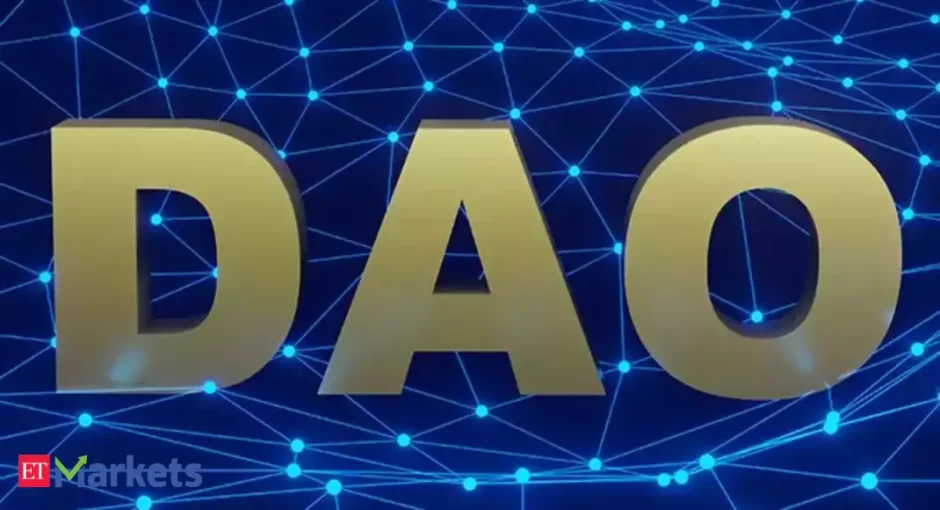What is DAO?

A decentralised autonomous organisation (DAO) is a software that runs on a blockchain and it offers people a model for the collective management of its code.
DAOs are different from rest organisations manage by boards and executives. It is governed by a limited group.
DAOs uses rules written down in code and enforced by the computers running a shared software.
To be a member of a DAO, people first need to join the DAO by buying its currency. This generally gives people the power to vote on updates, proportional to the amount they hold.
One example of a DAO is BitShares, an e-commerce platform that links merchants and customers without a central authority. At one time, Bitshares was labelled as a decentralised autonomous company (DAC), a term by its founder, Dan Larimer.
The first DAO, named as The DAO, was blighted by controversy, as hackers found a fault in the code.
How do DAOs Work?

DAOs are considered to copy a company structure where rules and regulations are made by open-source code and apply by smart contracts.
Basically smart contracts are accords programmed to carry out if and when the conditions will met. These rules are generally decides by the DAO stakeholders.
Unlike customary organisations, there is no ranking in DAOs. Rather, to make up the interests of the organisation with the members, DAOs motivate a distribute network of users to achieve their goal.
One of the main features of a DAO is the internal capital to actuate these actors and ensure that the organisation runs fluently.
Once the main set of rules are established and programmed into smart contracts, DAOs generally enter a phase where anyone wishing to outbursts it can participate in.
Governance
After the funding phase, the DAO is live and functional, and all main decisions surrounding the organisation are made by people reaching a consensus on proposals.
By buying and locking cryptocurrencies into a voting contract, users have the power to vote on proposals, with the voting weight that is proportional to the amount of cryptocurrency locked.
The proposal is eventually instated based on the prearranged network consensus rules, and voters are honoured with additional cryptocurrency for participating.
Future of the DAO
What does the future grip for the DAO? The DAO as originally imagined had not returned as of mid-2020. Nonetheless, interest in decentralised autonomous organisations as a wider group carry on to grow. In 2019, The Maker Foundation, an idol in the crypto world as the real champion of DAO, said that it was officially turning operations over to MakerDAO (creator of the DAI stablecoin) and would disintegrate by the end of the year.8
While there are many persisting concerns and major issues related to legality, security, and structure, some analysts and investors trust that this type of organisation will basically come to prominence, perhaps even recovering old structured businesses.

